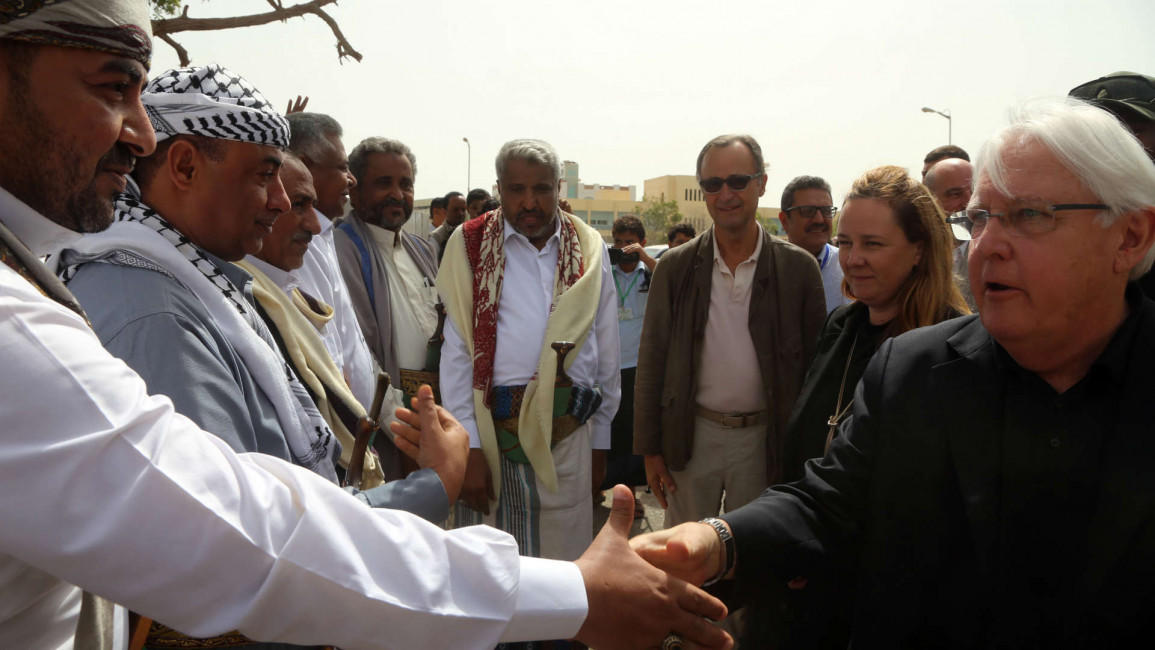Warring parties in Yemen reach initial compromise on lifeline port of Hodeida
Warring parties in Yemen reach initial compromise on lifeline port of Hodeida
Houthi rebels and the Yemeni government have agreed to a preliminary deal on Hodeida, a lifeline port which provides aid to millions in the Arab world's poorest country.
2 min read
UN Special Envoy meet Huthi officials in Hodeida on January 29, 2019 [AFP/Getty Images]
Opposing parties in Yemen have reached an initial compromise on a plan for the redeployment of forces from the key port of Hodeida, the United Nations said on Thursday.
Although the deal has not been finalised, the agreement is a major step forward for UN efforts to end the war in Yemen.
Although the deal has not been finalised, the agreement is a major step forward for UN efforts to end the war in Yemen.
Representatives from Yemen's government and Houthi rebels met in mediated talks between February 3-6 on a UN vessel in Hodeida's inner harbour, UN spokesman Stephane Dujarric said.
Dujarric said the head of the monitoring mission "tabled a proposal that proved acceptable, in principle ... pending further consultations by the parties with their respective leaders".
Hodeida, the fourth-largest city in Yemen, is the entry point for the bulk of Yemen's imported goods and humanitarian aid, providing a lifeline to millions in the Arab world's poorest country.
Patrick Cammaert, the outgoing head of the monitoring operation chaired this week's initial meetings alongside Michael Lollesgaard who will now take over. The UN hopes to reconvene the two sides "within the next week, with the aim of finalising details for redeployments".
Both parties are committed "to observe and enhance the ceasefire" as an agreement is worked out, the statement said. Skirmishes have continued between the two sides after they agreed to a cease-fire last month.
Yemen's government and Houthi rebels met in Sweden in December and agreed to a ceasefire in Hodeida, a redeployment of forces and access to humanitarian aid.
This deal was seen as a major step towards ending the devastating war, which began in 2014 with the takeover of the capital Sanna by the Iranian-backed Houthis.
The Houthi movement controls Sanaa, much of Hodeida and other parts of Yemen in a war that pits the rebels against the Saudi-backed Yemeni government.
The conflict has killed more than 10,000 people and triggered what the UN calls the world's worst humanitarian crisis, in which 14 million are at the brink of famine. Rights groups believe the death toll to be five times higher.



